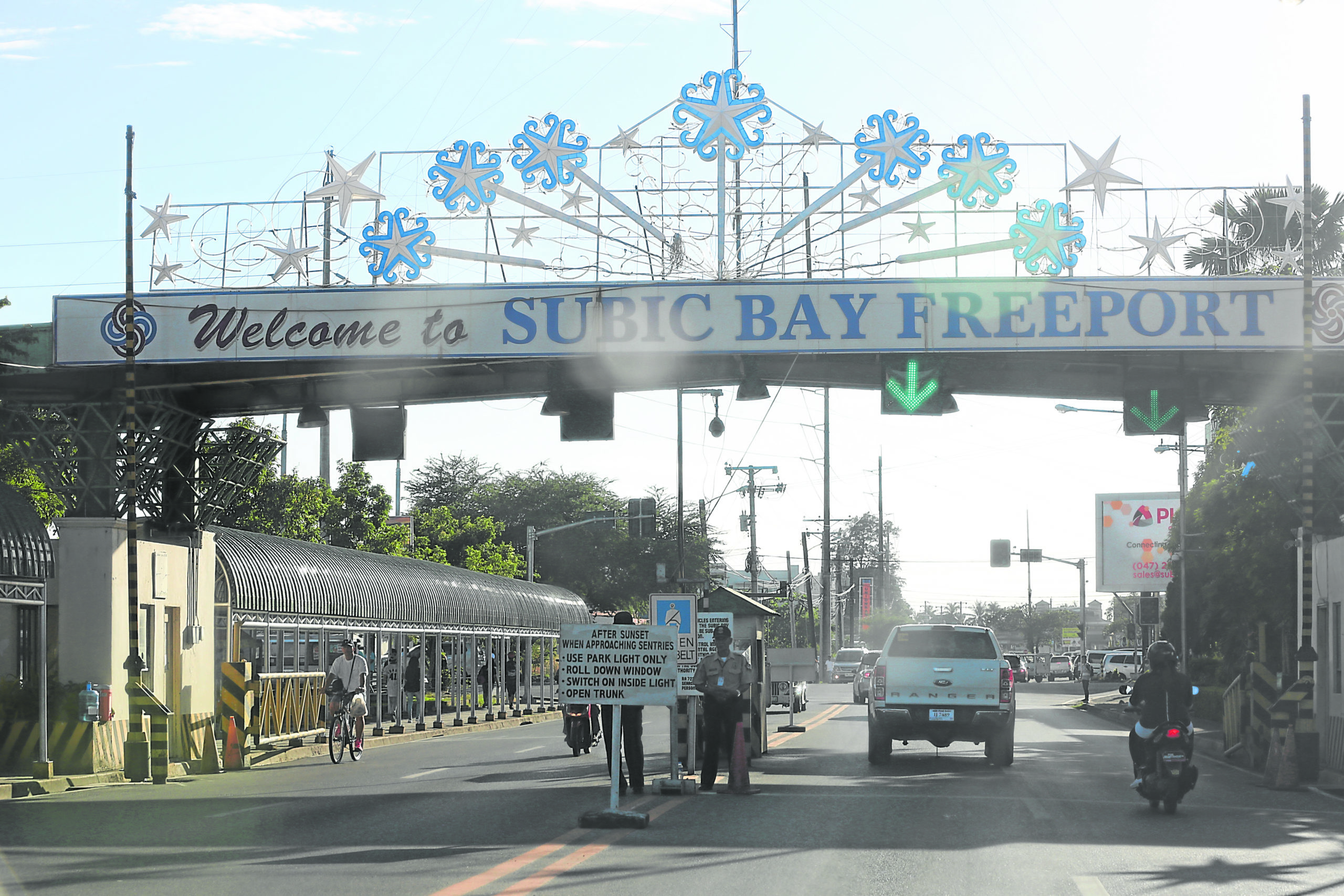
WELCOME Motorists and pedestrians are greeted by this welcome arch at the entrance gate of the Subic Bay Freeport in Zambales province. —NIÑO JESUS ORBETA
CLARK FREEPORT—Businesses resumed in this economic zone as 25 percent of locators began operating in June when Pampanga province shifted to a more relaxed general community quarantine (GCQ) against the new coronavirus disease (COVID-19).
Records from Clark Development Corp. (CDC) showed that more than 11,000 workers of 290 companies here returned to work to jump-start the manufacturing, supply chain and logistics sectors. The free port has 1,150 registered companies.
CDC and the Clark Freeport were formed through Proclamation No. 163, pursuant to the Bases Conversion and Development Act of 1992 (Republic Act No. 7227), which outlined “alternative productive uses” for former base lands.
CDC said companies engaged in information, technology and business process outsourcing had also reopened, providing regular services through their 3,416 workers.
At least 11 banks, three trading firms, 26 restaurants, five canteens and 26 retail stores are now serving clients.
New normal
Noel Manankil, CDC president and chief executive officer, said he had advised locators to “strictly adhere to health protocols” and enforce “discipline for new normal behavior” among workers.
Clark’s tourism sector has yet to recover since GCQ protocols do not allow the operation of leisure and recreation, gaming and fitness establishments, and those catering to tourists.
CDC reported generating P6.08 billion in revenue from 2016 to 2019, with net income growing to P3.17 billion. Last January, it projected a 58 percent growth in net income in the next five years, but Manankil has yet to announce adjustments in CDC’s business targets.
Among its top revenue contributors were Widus International Leisure, Filinvest Mimosa, Eight Integrated Development Corp., Eaglesky Technology and Amusement Corp., Yokohama Tire Philippines, L&T International, Premier Central and Puregold Duty-Free.
CDC also reported remitting P2.02 billion in dividends to the national government for 2016 to 2018, making its total dividends at P4.07 billion since 1993.
3,500 workers retrenched
In Subic Bay Freeport, close to 3,500 workers were retrenched despite the resumption of business operations by at least 57 percent of its locators.
Records from the labor department of Subic Bay Metropolitan Authority (SBMA) showed that 20 companies, mostly in manufacturing, let go of their workers due to financial constraints caused by COVID-19.
These companies included Taiwanese computer maker Wistron Infocomm (Philippines) Corp., port operator Subic Bay International Terminal Corp., theme park operator Subic Bay Marine Exploratorium Inc., and importer Simon & Stanley International Trading & Development Co.
Forced leave
At least 2,435 workers had been on forced leave as of June 2, while 883 had been terminated since mid-February.
Ship repair firm Subic Drydock Corp. (SDC) will also terminate 52 employees on June 25 after implementing mandatory leave for 149 workers on May 1 to May 15, the SBMA report said.
Diana Ross Mazo, SDC administrative manager, said the community quarantine had “forced the business to shut down for two months without revenue.”
“Over the next few weeks, SDC will gradually increase capacity in support of the ‘new norm.’ However, based on careful review of our operation, we need to reduce manpower by separating some of our employees effective [on] June 25,” Mazo said.
Melvin Varias, SBMA labor department manager, said the retrenchment moves were being closely monitored to ensure that locators complied with labor laws.
The free port has 138,940 workers, with close to 70 percent in the services sector and more than 15 percent in manufacturing, Varias said. —TONETTE OREJAS AND JOANNA ROSE AGLIBOT INQ